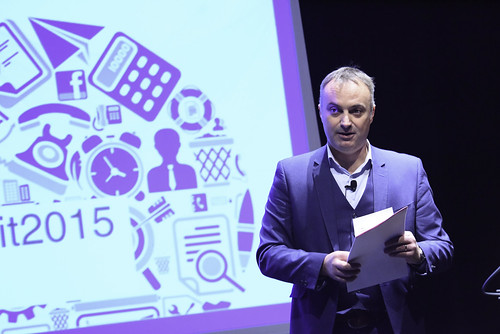Virtual travel agents may be selling holidays in the future according to the Sabre Travel Network. Speaking at the Travolution Summit this week, head of innovation and technology evangelist EMEA at Sabre Travel Network, Joakim Everstin, set out the different kinds of technology he believes will influence travel in a big way.
_w=800_h=600_pjpg.jpg?v=20230522122229)
Travolution Summit: Sabre predicts further automation raising possibility of Virtual Travel Agents
Virtual travel agents may be selling holidays in the future according to the Sabre Travel Network.
Speaking at the Travolution Summit this week, head of innovation and technology evangelist EMEA at Sabre Travel Network, Joakim Everstin, set out the different kinds of technology he believes will influence travel in a big way.
Included was robotics. “Many jobs can be replaced with semi intelligent robots in combination with humans,” he said. “With the help of voice command you could have one human do 10 people’s work.”
However Everstin said unfailing voice recognition will be “crucial” to the success of such technologies and that the more complicated the command, the more difficult it is for a robot to complete.
“You can teach a machine to do common tasks, but when it comes to travel it’s so complex I don’t think we can create a virtual travel agent, because there are too many combinations,” he said.
“However I think we can help the travel industry create a service that could serve maybe 80% of the cases.
“To create a 100% virtual travel agent we would need to create self-learning intelligence and we’re not there yet. Eventually we’ll get there.”
Everstin demonstrated a Sabre Travel Network prototype web service which can be spoken to and will respond with the correct context.
After asking about flights to New York, Everstin was verbally told both the next available flight and the cheapest flight.
Olivier Binse, director of Deloitte Digital, agreed that while technology is “augmenting” travel agents, it is not replacing them.
“What exponential growth in technology does is turn scarce resources into something which is abundant.
“Scarce information used to justify the existence of travel agents but now it has become abundant – 56% of travel agents have disappeared from London in the last 10 years and 44% in the rest of the UK.
“But new businesses create jobs. We did some research six months ago with Oxford University to look at the impact of computerisation on jobs.
“The jobs that have the highest probability of disappearing because of computerisation are sales and customer service.
“But in the middle you’ve got an interesting phenomenon, you’ve got things like caring, leisure and service, which is typically what the travel sector is trying to provide. Things where there is a human connection.”
Both Binse and Everstin use the case study of robotic receptionist introduced into a hotel in Japan.
“Computerisation is not going to kill jobs,” said Binse.
“It’s going to enhance them and augment the capability of human beings, not replace them.”




